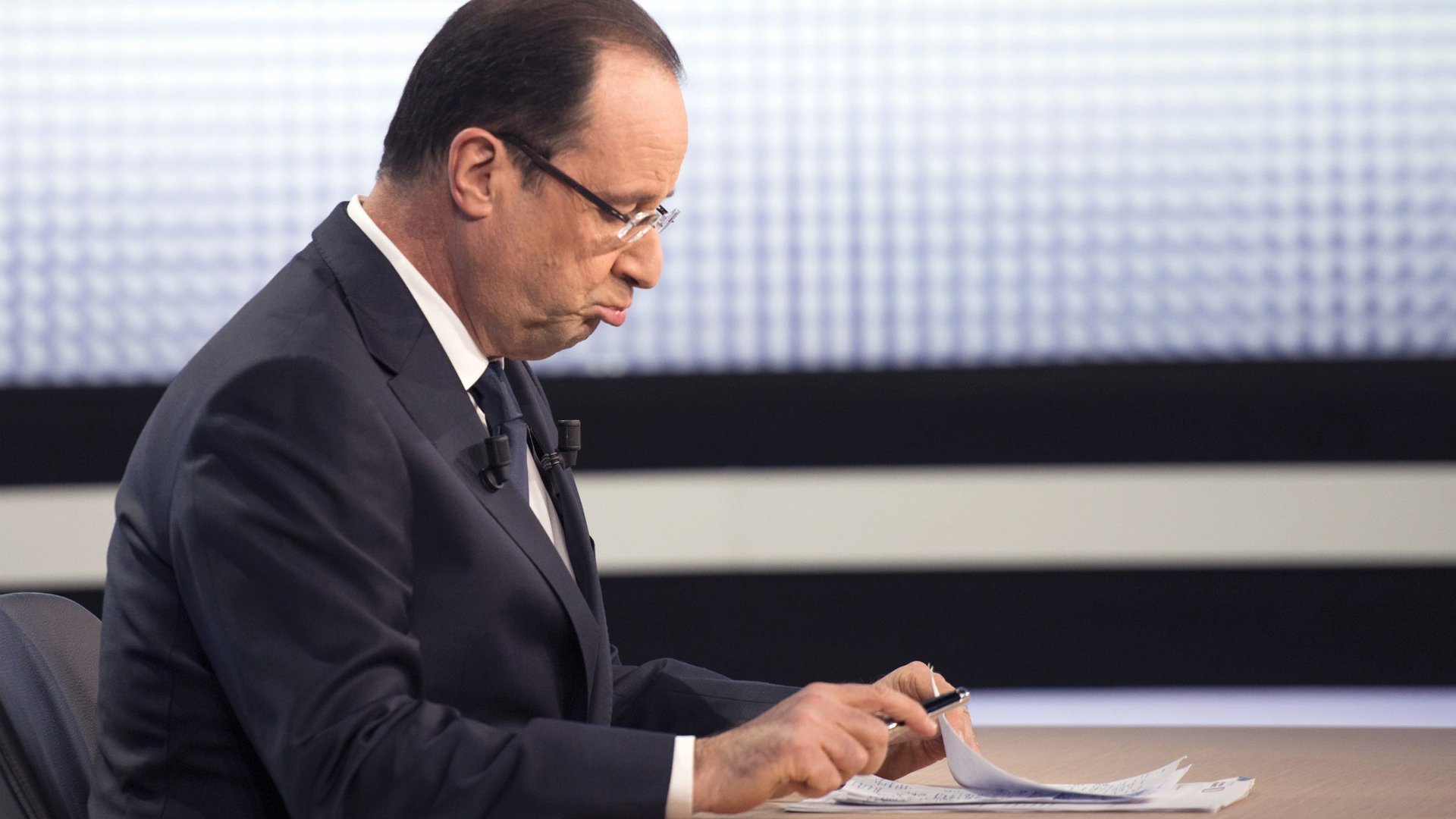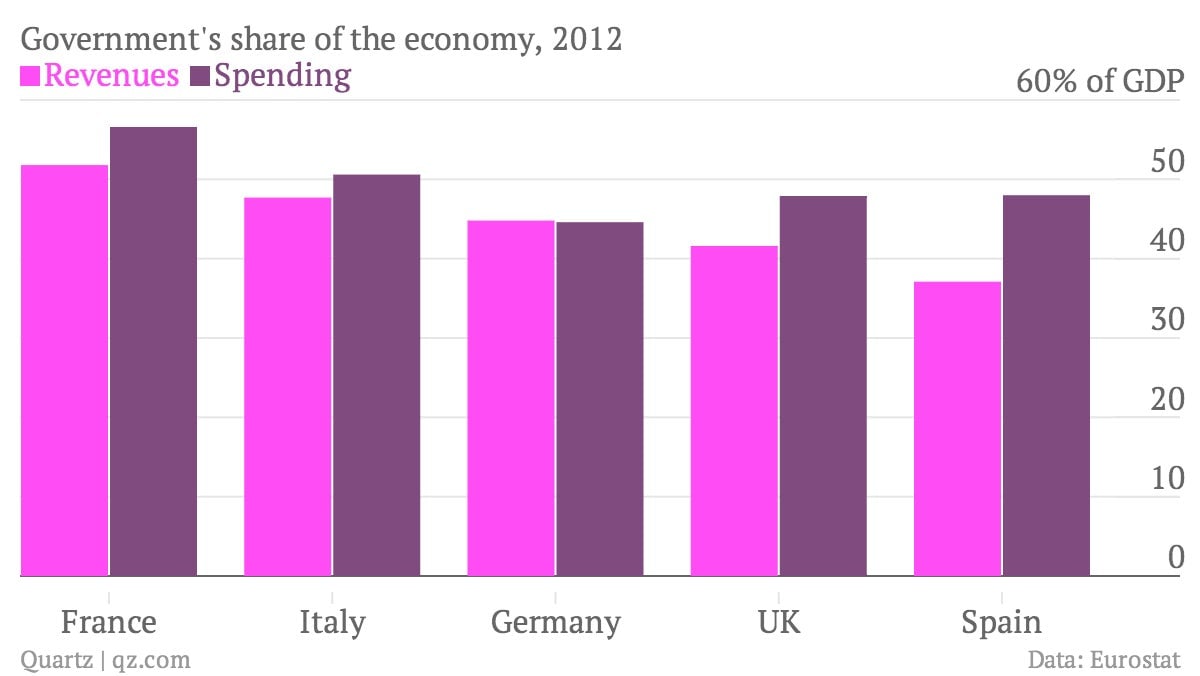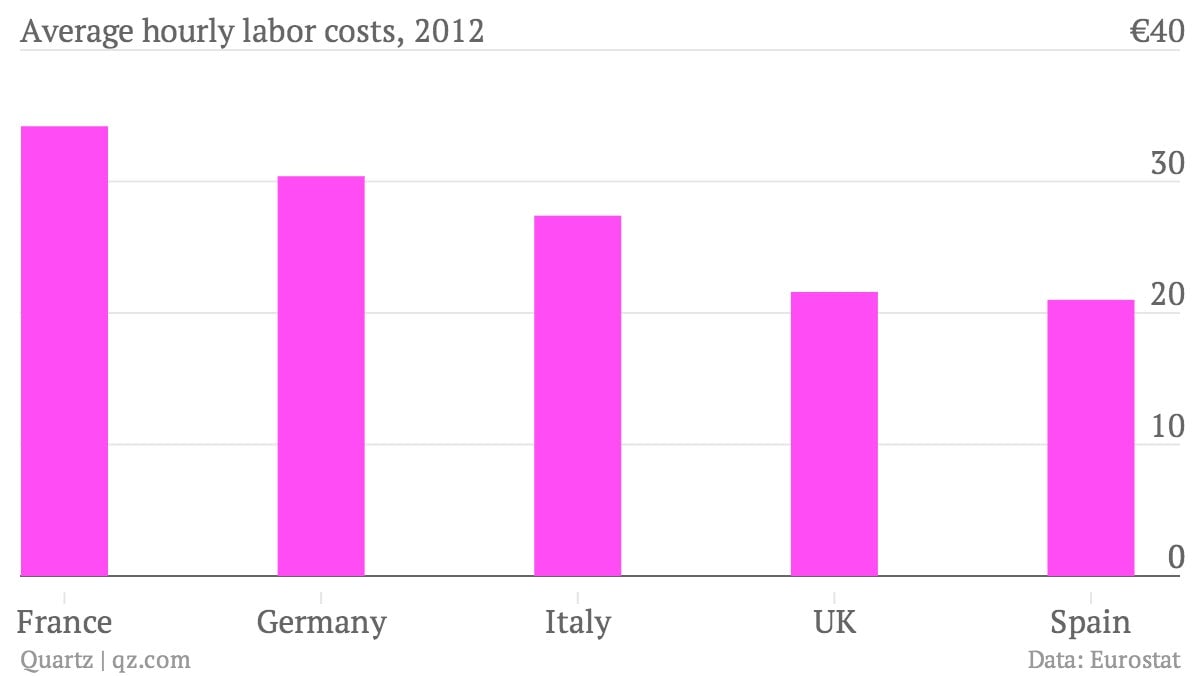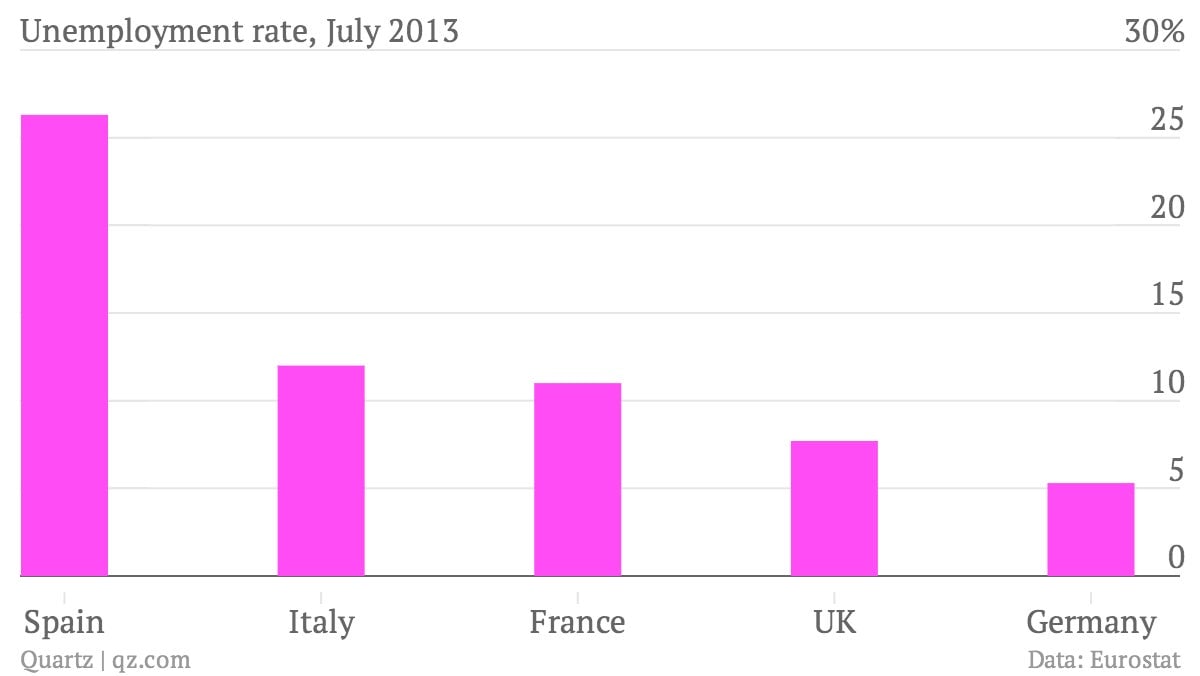François Hollande is vying to become the least popular French president in history
Slow growth, high taxes and moribund industry. Bienvenue en France.


Slow growth, high taxes and moribund industry. Bienvenue en France.
The French government unveiled its 2014 budget yesterday, inspiring groans across the country. French president François Hollande, who was voted into office in May 2012 by pledging to lighten up on austerity and impose heavier taxes on the rich, recently admitted that his government’s tax-hiking zeal may have gotten a little carried away. According to the latest budget, taxes will rise by €3 billion ($4.1 billion) next year—on top of €60 billion in hikes over the past three years—as part of a deficit-reduction package worth €18 billion in total.
Leaning more on spending cuts than tax hikes is a departure from previous budgets, but after recently promising a “tax pause,” Hollande’s latest hike, however small, is not going over well. Hollande’s approval rating, a paltry 23%, is only a whisker above the all-time low for any French president.
Many of the new budget measures (link in French) were already made public by officials in recent weeks, presumably to soften the blow when they appeared together in a single, depressing document. Admitting that France will miss its budget deficit target earlier this month, finance minister Pierre Moscovici pitched the shortfall as an opportunity to support growth instead of inflicting more austerity on the economy. He also admitted, bluntly, that the French are “fed up” with taxes. Still, the budget only modestly shrinks the size of the state relative to the economy, already one of the largest in Europe.

In the lead-up to the budget, Hollande also announced a new industrial plan (link in French), pledging around €4 billion in spending across 34 priority sectors, including vague if splashy areas like “Big Data” and somewhat obscure notions like “telecoms sovereignty.” Analysts are not impressed.
Hollande isn’t that popular with businesses, thanks to the impact that the country’s heavy tax burden has on labor costs. A third of France’s average hourly wage cost is comprised of taxes and other social contributions, the highest percentage in the EU. For their part, French officials have recently taken to blaming unfairly low wages in Germany as the real enemy of French competitiveness.

And with the upward revisions of deficit estimates came lower forecasts for GDP growth. France expects to eke out growth of only 0.1% this year and 0.9% in 2014. As a result, government debt will rise above 95% of GDP next year, which is higher than that of crisis-hit Spain. In the European league table, France’s unemployment rate, at 11%, puts it roughly in the middle of the resilient north and the struggling south.

The financial crisis did not hit France nearly as hard as some other European countries. As a result, it has been slow to reform its famously bureaucratic state or boost the efficiency of its businesses. As its neighbors recover, France risks losing ground. Its deeply unpopular president has signaled a change in approach in his government’s latest budget, but the resulting series of half-measures and mixed messages seems designed to please precisely no one.